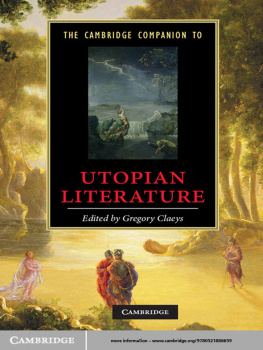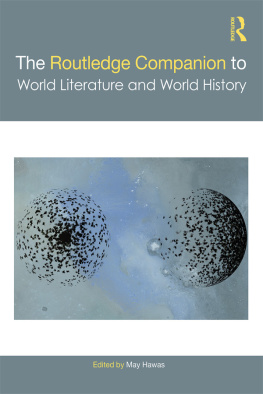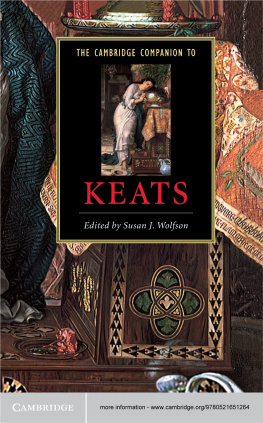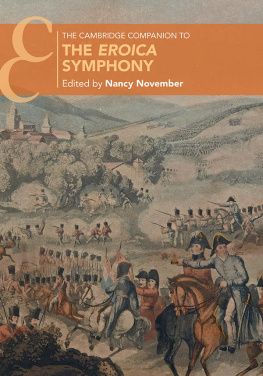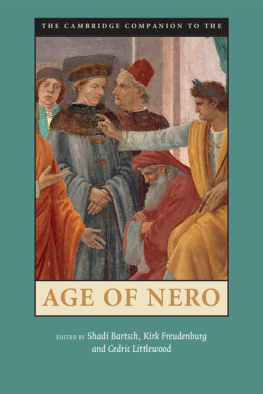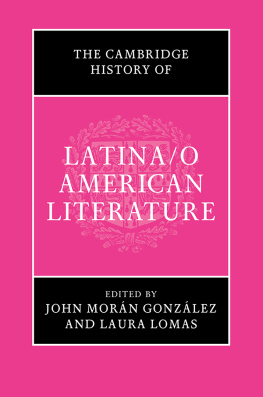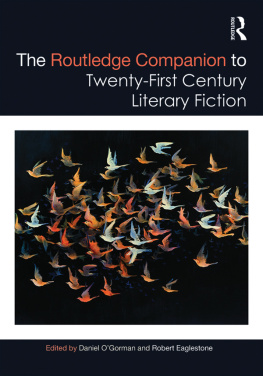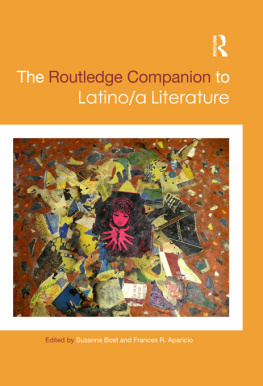David Alderson is Professor of Literary and Cultural Studies at the University of Manchester and has written extensively on gender, sexuality, and the neoliberal transition. He is the author of Sex, Needs, and Queer Culture (2016), and coeditor of For Humanism: Explorations in Theory and Politics (2017). He is currently working on a project on culture and the political economy of the family.
Jens Beckert is Professor of Sociology and a director of the Max Planck Institute for the Study of Societies in Cologne. He is the author, most recently, of Imagined Futures: Fictional Expectations and Capitalist Dynamics (2016) and coeditor, with Richard Bronk, of Uncertain Futures: Imaginaries, Narratives, and Calculation in the Economy (2018).
Craig E. Bertolet is Professor of English at Auburn University. He is the author of Chaucer, Gower, Hoccleve, and the Commercial Practices of Late Fourteenth-Century London (2013). He has coedited, with Robert Epstein, Money, Commerce, and Economics in Late Medieval English Literature (2018). His articles have appeared in Studies in the Age of Chaucer , Chaucer Review , and Studies in Philology , among others. He is at present working on a book on money in late medieval English literature.
Richard Bronk is author of The Romantic Economist: Imagination in Economics (2009) and coeditor, with Jens Beckert, of Uncertain Futures: Imaginaries, Narratives, and Calculation in the Economy (2018). He worked for seventeen years in the City of London as a European equity fund manager and an adviser at the Bank of England. From 2000, he taught political economy in the European Institute at the London School of Economics, where he was a Visiting Senior Fellow until 2020.
E. J. Clery is Professor of English Literature at Uppsala University. Her publications include The Rise of Supernatural Fiction, 17621800 (1995); Womens Gothic from Clara Reeve to Mary Shelley (2000); The Feminization Debate in Eighteenth-Century England: Literature, Commerce, and Luxury (2004); Jane Austen: The Bankers Sister (2017); and Eighteen Hundred and Eleven: Poetry, Protest, and Economic Crisis (2017), awarded the British Academy Rose Mary Crawshay Prize. She teaches and researches eighteenth-century and Romantic-era literature, book history, and the cultural history of economics.
Sarah Comyn is a Lecturer and Ad Astra Fellow in the School of English, Drama, and Film at University College Dublin. Recent publications include Political Economy and the Novel: A Literary History of Homo Economicus (2018), Early Public Libraries and Colonial Citizenship in the British Southern Hemisphere (with Lara Atkin, Porscha Fermanis, and Nathan Garvey; 2019), and Worlding the South: Nineteenth-Century Literary Culture and the Southern Settler Colonies (coedited with Porscha Fermanis; 2021).
Liam Connell is Principal Lecturer in Literature at the University of Brighton. He is the author of Precarious Labour and the Contemporary Novel (2017). His research interests include the representations of gender and the global divisions of labor within contemporary culture.
Paul Crosthwaite is a senior lecturer in the Department of English Literature at the University of Edinburgh. He is the author of The Market Logics of Contemporary Fiction (2019) and Trauma, Postmodernism, and the Aftermath of World War II (2009); coauthor of Invested: How Three Centuries of Stock Market Advice Reshaped Our Money, Markets, and Minds (2022); editor of Criticism, Crisis, and Contemporary Narrative: Textual Horizons in an Age of Global Risk (2010); and coeditor, with Peter Knight and Nicky Marsh, of Show Me the Money: The Image of Finance, 1700 to the Present (2014) and the book series Palgrave Studies in Literature, Culture, and Economics.
Laura Finch is an Assistant Professor in the Literature Section at the Massachusetts Institute of Technology, and her research focuses on twenty-first-century novels and finance. Her work has appeared in American Literary History, Comparative Literature Studies , the Journal of American Studies , the Journal of Cultural Economy , and boundary2 .


